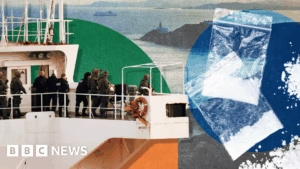Canadian-American anti-whaling activist Paul Watson welcomed Interpol’s decision by stating, ‘I am finally free.’
<
div aria-live=”polite” aria-atomic=”true”>
Interpol, the global law enforcement organization, announced the removal of its most-wanted status for Paul Watson, a prominent anti-whaling activist and Sea Shepherd conservation group founder, who has been sought by Japan in connection with a 2010 incident involving a whaling ship.
Interpol had issued an arrest warrant, known as a “red notice,” at Japan’s request following Watson’s confrontational tactics against whaling operations on the open sea.
According to Watson’s Paris-based lawyer, William Julie, Interpol concluded that the red notice against Watson was “disproportionate.”
A red notice serves as an international alert for law enforcement agencies worldwide to locate and provisionally detain a person pending legal proceedings, based on a warrant from the requesting country’s judicial authorities—Japan, in this case.
🚨INTERPOL RED NOTICE CANCELLED!!
The Japanese whalers have pursued me for 14 years since my first detention in Frankfurt, Germany, in May 2012.
It’s been a relentless pursuit by a very powerful nation with unlimited resources, but I am finally free.
https://t.co/XIBuMwksoe
Interpol’s Commission for the Control of Interpol’s Files (CCF) has confirmed that the arrest warrant for Watson has been removed from their system.
The CCF’s decision was influenced by new developments, including Denmark’s refusal to extradite Watson—a factor aligned with standard procedures, according to an Interpol representative.
Watson was taken into custody in Greenland in July 2024 based on a Japanese arrest warrant, which accused him of damaging a whaling vessel and injuring a crew member. He was later released in December following Denmark's denial of Japan's extradition request concerning the 2010 incident.
Watson has since returned to France, where his children are in school.
<p>In a statement by Watson’s lawyer, the CCF was critical that the initial red notice failed to meet Interpol's own standards due to the allegations being disproportionate, as well as the significant time elapsed and other countries’ inaction on previous Japanese arrest








